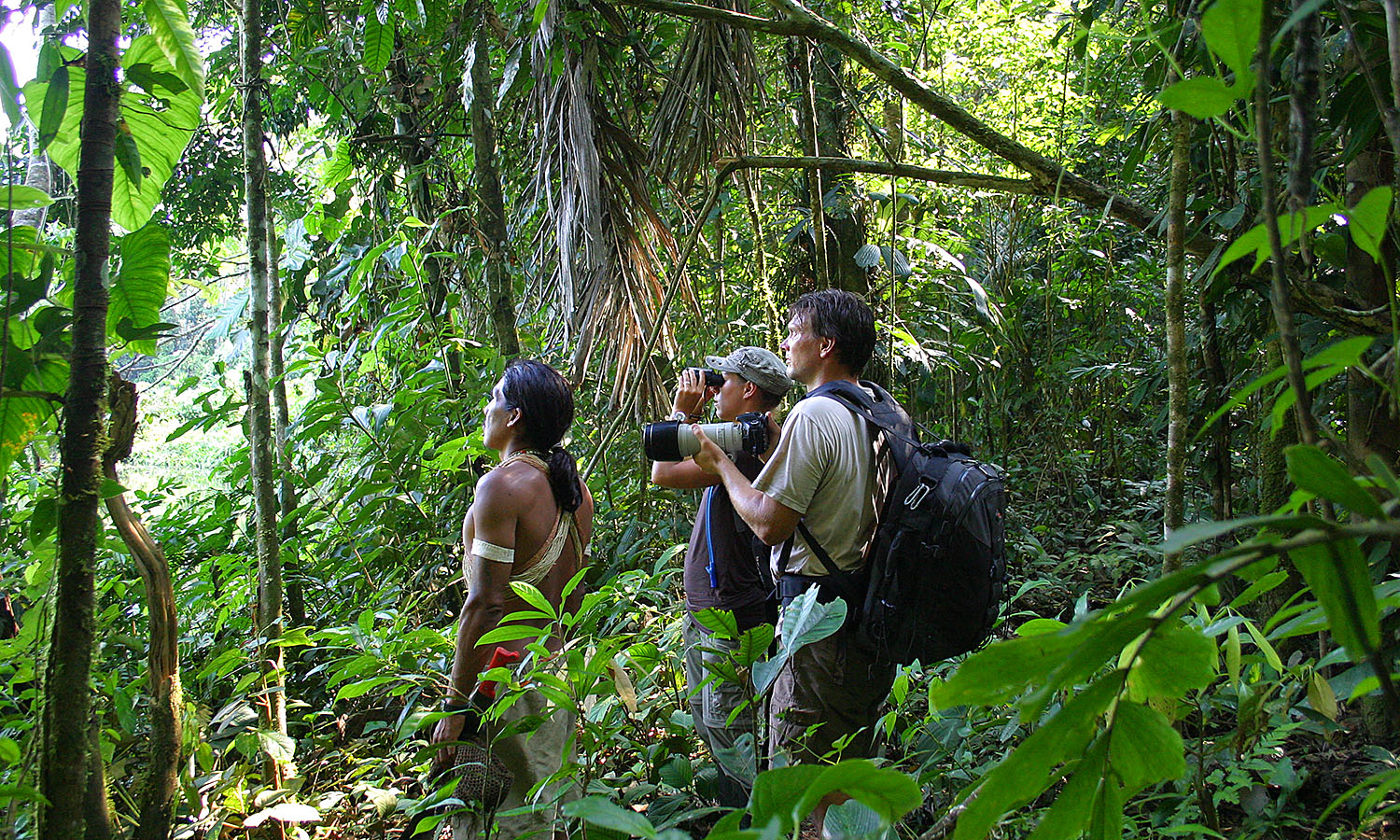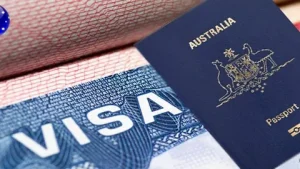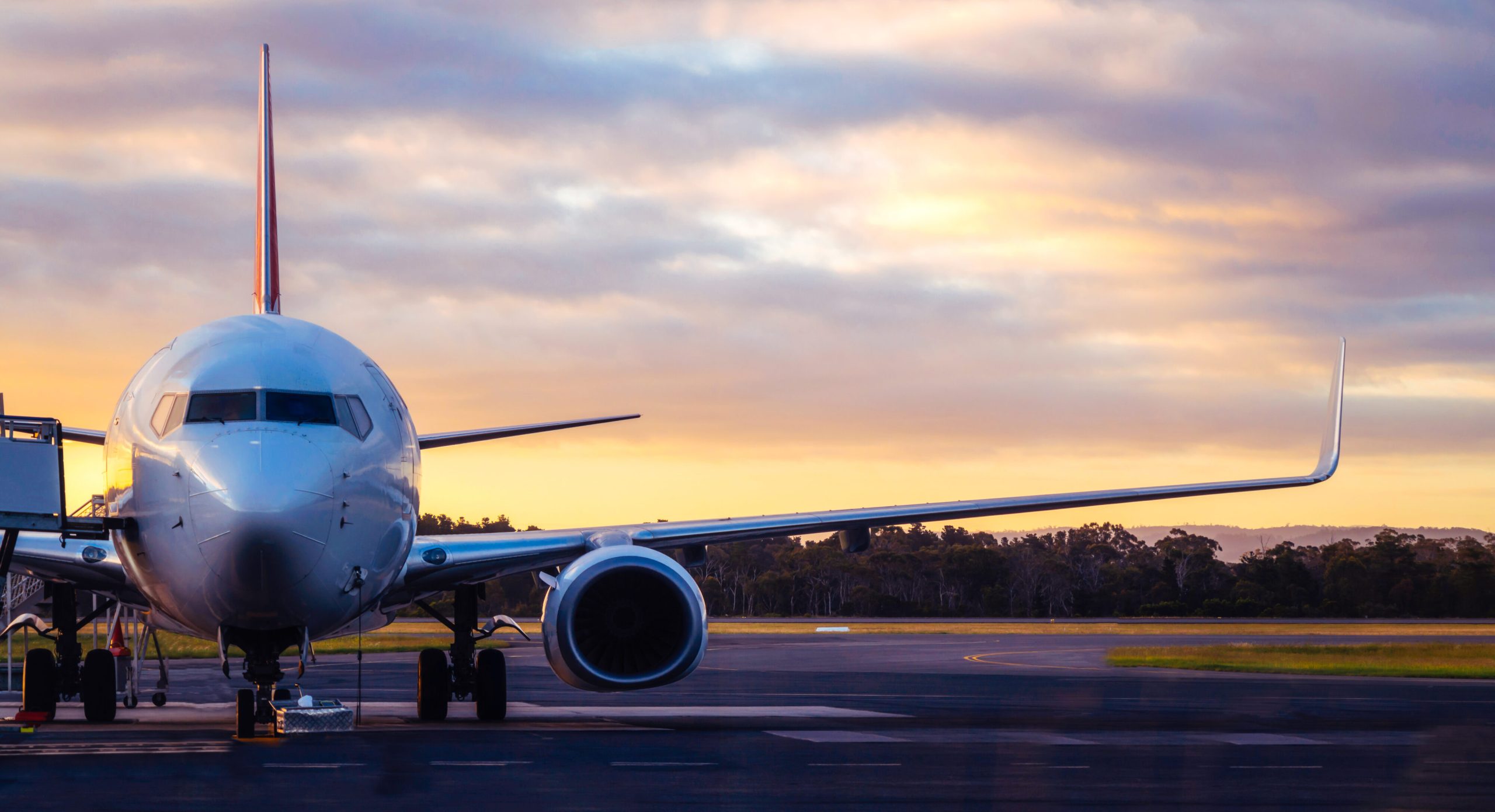Travel & Hospitality
The Best Hiking Trails Around the World

Spanning over 2,190 miles from Georgia to Maine, the Appalachian Trail is one of the most iconic long-distance hiking trails in the United States. The trail traverses through 14 states and offers a variety of terrains, from dense forests to rocky ridges. It is renowned for its scenic beauty and the sense of accomplishment it provides to those who complete it.
Pacific Crest Trail, USA
Stretching 2,650 miles from the Mexican border to Canada, the Pacific Crest Trail offers hikers an opportunity to experience the diverse landscapes of the western United States. The trail passes through California, Oregon, and Washington, featuring deserts, mountains, and forests. It is a challenging hike that requires thorough preparation and physical endurance.
Banff National Park, Canada
Banff National Park, located in Alberta, Canada, is home to some of
Image by yandex.com
the most stunning hiking trails in North America. The park’s trails offer breathtaking views of the Canadian Rockies, turquoise lakes, and abundant wildlife. Popular hikes include the Plain of Six Glaciers and the Larch Valley Trail.
The Torres del Paine National Park in Chilean Patagonia is renowned for its dramatic landscapes, including mountains, glaciers, and lakes. The W Trek and the O Circuit are two of the most popular hiking routes in the park, offering hikers a chance to experience the stunning scenery and diverse ecosystems.
Inca Trail, Peru
The Inca Trail is one of the most famous hiking trails in the world, leading to the ancient city of Machu Picchu. The trail spans approximately 26 miles and takes hikers through diverse landscapes, including cloud forests, alpine tundra, and Inca ruins. The journey culminates with a breathtaking sunrise over Machu Picchu.
Huayna Potosí, Bolivia
Huayna Potosí is a popular trekking and mountaineering destination located near La Paz, Bolivia. The climb to the summit, which stands at 19,974 feet, offers stunning views of the surrounding Andes Mountains. The trek requires acclimatization and is best suited for experienced hikers and climbers.
Europe
The Tour du Mont Blanc is a classic long-distance hiking trail that circumnavigates the Mont Blanc massif. The route covers approximately 110 miles and passes through France, Italy, and Switzerland. Hikers are treated to spectacular alpine scenery, charming villages, and diverse cultures.

Image by yandex.com
Conclusion
Hiking is a truly global activity that offers a unique way to experience the natural beauty and diverse landscapes of our planet. Whether you are seeking a challenging long-distance trek or a leisurely day hike, **The Best Hiking Trails Around the World** provide something for every level of hiker. From the rugged mountains of North America to the serene fjords of New Zealand, these trails offer an unparalleled opportunity to connect with nature and embark on an unforgettable adventure.
Development
Australian Migration: Expert Support for Travel Dreams

Australia is not just a country people visit—it is a place people fall in love with. From iconic city skylines and pristine beaches to world-class education and global career opportunities, Australia has a way of turning short trips into lifelong dreams. Many travelers arrive with a suitcase and a return ticket, only to realize that they want to stay longer and build a future here.
The journey from traveler to resident, however, requires more than excitement. Australian migration visa rules are detailed, structured, and constantly evolving. Without proper guidance, even well-intentioned travelers can feel lost. This is where professional migration support becomes the key to a smooth and stress-free transition.
When Travel Experiences Lead to Migration Goals
For most people, migration begins with travel. A student comes for education, a professional arrives on a temporary work visa, or a visitor explores the country while meeting family or friends. Over time, Australia’s lifestyle, safety, and opportunities begin to feel like home.
Common travel experiences that often lead to migration decisions include:
- Studying at Australian universities and adapting to local culture
- Working temporarily and gaining international experience
- Visiting loved ones and forming long-term relationships
- Exploring different cities to find the right lifestyle fit
As these experiences grow, travelers start asking important questions about extending their stay legally. At this stage, guidance from experienced Australian visa professionals
helps travelers understand which pathways are realistic and suitable for their long-term plans.

Why Expert Guidance Makes Travel-to-Migration Easier
Australia’s immigration system is built on strict criteria, documentation accuracy, and timelines. Relying on outdated online advice or informal suggestions can lead to refusals or unnecessary delays.
Professional migration agents simplify the process by:
- Reviewing travel history, qualifications, and skills
- Identifying visa options that align with future goals
- Ensuring documentation meets legal requirements
- Managing deadlines and communication
For travelers, this level of support feels similar to hiring a local guide while exploring a new country. Instead of uncertainty, there is structure and confidence at every step.
Visa Pathways That Appeal to Travelers
Australia offers a wide range of visa options that naturally suit travelers who want to stay longer or settle permanently. Each pathway serves a different purpose and requires careful planning.
Popular options include:
- Student visas with post-study work opportunities
- Skilled migration visas for qualified professionals
- Employer-sponsored visas for experienced workers
- Partner and family visas for genuine relationships
Choosing the wrong pathway can slow down progress or close future options. That’s why travelers often turn to licensed MARA migration advisors in Australia
who ensure every decision supports both current travel plans and future residency goals.
How Migration Agents Support the Travel Journey
Migration experts understand that for travelers, migration is not just a legal process—it is a life transition. Their role goes beyond form filling and application submission.
They assist travelers by:
- Creating personalized migration strategies
- Explaining risks, timelines, and realistic outcomes
- Preparing applicants for visa changes and extensions
- Offering guidance even after approval
This ongoing support allows travelers to focus on settling into Australian life—finding housing, adjusting to work culture, and exploring new surroundings—without constant stress about visa compliance.
Turning a Temporary Stay Into a Long-Term Plan
Many travelers arrive in Australia without knowing how temporary visas connect to permanent residency pathways. With the right guidance, short-term stays can be transformed into structured long-term plans.
Migration professionals help travelers:
- Understand how current visas affect future options
- Avoid actions that may harm eligibility
- Plan education, work, and location strategically
- Stay compliant with Australian immigration laws
This long-term perspective ensures that each step taken today supports future opportunities rather than limiting them.
Trust and Transparency While Living Abroad
When living or traveling in a foreign country, trust becomes essential. Travelers want professionals who are honest, transparent, and focused on lawful outcomes rather than shortcuts.
Reliable migration guidance is defined by:
- Clear and realistic assessments
- Ethical and compliant processes
- Consistent communication
- Focus on sustainable migration outcomes
This trust gives travelers peace of mind, allowing them to enjoy Australia’s lifestyle without constant anxiety about their legal status.
Migration Is a Journey, Just Like Travel
Just as travel requires planning, budgeting, and preparation, migration demands patience and informed decisions. Rushing applications or following incorrect advice can lead to setbacks that delay dreams for years.
Australia rewards those who plan carefully. With expert support, travelers can move confidently from visitor status to long-term residency, creating a future that aligns with their aspirations.
Final Thoughts
Australia attracts people with its beauty, but it keeps them with opportunity. Turning a travel experience into a stable future requires more than passion—it requires expert guidance and careful planning.
With professional Australian migration support, the visa process becomes clear, organized, and stress-free. Just like every great journey deserves a reliable map, your migration journey deserves trusted experts who understand both the legal framework and the dreams that drive it.
Consumer Services
Southwest Airlines Unaccompanied Minor: Guide for Parents

Is your little one between the ages of 5 to 11 and ready for their first big adventure without you? Many parents wonder if the Southwest Airlines Unaccompanied Minor (UM) service is the right choice for their child and what the associated charges are. Don’t worry! In this guide, you’ll find all the information you need about this service, including costs, requirements, and useful tips to ensure a smooth travel experience for your child.
Southwest Airlines Unaccompanied Minor Service
Traveling alone can be a significant step for children, but Southwest Airlines ensures that this journey is made safe and comfortable through its Unaccompanied Minor service. Designed for children traveling without an adult (age 12 or older), the service provides structured assistance from departure to arrival, making it easier for parents to let their children travel independently.

What Is the Cost of the Unaccompanied Minor Service?
The cost for the Unaccompanied Minor service on Southwest Airlines ranges from $100 to $200 for one-way travel, in addition to the standard airfare. This fee covers several valuable services, including:
- Staff Assistance: Children are escorted through the airport by trained staff.
- Priority Boarding: Unaccompanied minors are often allowed to board early, providing them with a stress-free experience to settle in.
- Seating Near Crew Members: Children are seated close to flight attendants for additional supervision during the flight.
These prices are set and are expected to remain stable through 2025, but it’s advisable to verify rates on the Southwest Airlines website for any updates.
Required Documentation for Unaccompanied Minors
When sending your child on an unaccompanied flight with Southwest, it is crucial to present specific documents at check-in to verify their age and ensure a smooth handover. These documents include:
- Original or Copy of the Child’s Birth Certificate: This verifies the child’s age.
- Passport: A passport can also be used to verify the child’s age (5-11 years).
- Government-Issued Photo ID: For the adults dropping off and picking up the child.
- Completed Unaccompanied Minor Form: This form includes detailed information about the child, flight info, and emergency contacts.
Who Is Eligible for the Unaccompanied Minor Service?
The Southwest Airlines UM service is available for children aged 5 to 11 flying alone on nonstop domestic flights. It’s important to note that children under the age of five cannot travel without an adult. However, children aged 12 to 17 can travel independently as Young Travelers, but they must demonstrate the maturity to handle check-in, security, and boarding without assistance.
How to Pay for the Unaccompanied Minor Fees
Paying for the Unaccompanied Minor fee on Southwest Airlines is straightforward. Parents can add the fee during the online booking process on the Southwest website or can handle it at the airport ticket counter during check-in. Standard payment methods, including credit and debit cards, are accepted, and this fee gets added to the total airfare. Importantly, the fee is refundable should the trip be canceled, or if an adult ends up accompanying the child.
Booking and Check-In Procedures
Booking a reservation for an Unaccompanied Minor is simple. Parents or guardians must provide the following information during the booking process:
- Child’s Full Name and Age
- Contact Details of the Drop-Off Guardian
- Contact Details of the Pick-Up Guardian
- Emergency Contact Information
Once at the airport, the accompanying adult must check the child in at the ticket counter since curbside or self-service check-in is not permitted. The guardian will need a valid government-issued ID and obtain a gate pass to escort the child through security. It is crucial to emphasize that the accompanying adult must remain at the gate until the flight has departed.
Onboard Care and Supervision
Southwest flight attendants are well-trained to assist Unaccompanied Minors throughout the flight, ensuring their safety and comfort. Some notable aspects of this service include:
- Early Boarding: This allows children to settle into their seats without the hassle of general boarding.
- Periodic Check-Ins: Flight attendants will periodically check on the child, assist with snacks or beverages, and provide reassurance if they feel anxious.
While Southwest does not provide special meals or entertainment options, parents are encouraged to pack snacks, books, games, or tablets to keep their child entertained during the journey.
Arrival Procedures and Safe Pick-Up
Upon landing, safety is the top priority. Airline staff will escort the child off the aircraft and into the airport terminal. Importantly, the child is only released to the authorized pick-up guardian listed in the reservation. The authorized adult must present valid identification and sign release documents before taking custody of the child.
Travel Tips for Parents
To ensure a smooth journey for your child, here are some helpful travel tips:
- Book Morning Nonstop Flights: Morning flights typically encounter fewer delays.
- Arrive Early: Aim to arrive at the airport at least two hours prior to the flight for a hassle-free check-in experience.
- Label All Baggage: Clearly labeling all bags can prevent mix-ups.
- Pack Entertainment and Essentials: Make sure to include activities to keep your child occupied.
- Review Airport Procedures with Your Child: This will help prepare them for the travel experience.
Final Thoughts
The Southwest Airlines Unaccompanied Minor program stands out as one of the most parent-friendly and affordable options in the industry. With structured supervision, strict travel policies, and attentive inflight care, children can confidently travel alone. Proper planning, early booking, and preparation play significant roles in ensuring that the experience is both safe and enjoyable for both kids and parents.
Southwest Airlines’ Unaccompanied Minor service prioritizes safety, offering front-row seating and pre-boarding when necessary. Parents can plan ahead to save themselves potential hassles. For peak travel seasons, early booking is essential, and don’t hesitate to reach out to customer service for any extra assistance you might need.
Remember, empowering your child to travel independently can be an enriching experience, setting the stage for their future adventures.
If you have any further questions or need detailed assistance, feel free to reach out to Southwest Airlines dedicated customer service, or consult their official website for more information. Safe travels!
Business
Norse Atlantic Airways Flash Sales: Tips for Budget Travelers

Norse Atlantic Airways provides an opportunity for budget-conscious travelers to cross the Atlantic in comfort. With competitive pricing and a focus on customer satisfaction, the airline is gaining attention among savvy fliers. When a flash sale happens, rates drop to levels that seem almost impossible for such a long trip. However, travelers must be aware of the highly strict rules that accompany these deals.
These promotions often come with specific conditions and limited availability, making it crucial to act fast. While jumping on a fantastic deal can save you money, it can also lead to challenges if you’re not informed. For any questions, you can contact the Norse Atlantic Airways customer support phone number in San Francisco for assistance.
Their team is ready to provide guidance, ensuring you make the most informed decisions before finalizing your booking. Understanding the nuances of these promotions can significantly enhance your travel experience.
Your Travel Dates Must Fall Within Specific Windows
The flash sales don’t occur daily throughout the year. They usually apply only during specific times when planes have fewer passengers. You may discover that the lowest fares are available only on mid-week days like Tuesdays or Wednesdays.
Travel over the weekend typically does not yield the same discount. It may cost much higher than what the promotion initially advertised.
If you plan to visit during the summer peak season or the winter holidays, the sale prices might not apply to your travel. Every wise traveler must watch the calendar before falling in love with a price.

These Low Prices Usually Mean Your Money Stays with the Airline
A full refund is usually not possible when you purchase a ticket on a huge promotion. This means that if you don’t go, the airline will keep the money you paid for the fare. Airlines structure flash sale fares to fill otherwise vacant seats, unlike standard or premium fares, which offer greater flexibility.
Due to the low cost, the airline or any rep at the Norse Atlantic Airways phone number in San Francisco cannot provide a refund for a change of heart or minor scheduling difficulties.
Modifying Your Itinerary Will Likely Cost a Bit Extra
When booking a flash sale, you will pay hefty fees if you need to change your flight date. In most cases, the fee to shift the date may even exceed the initial ticket price. You will also need to pay the difference between your cheap fare from the sale and the current market price of the new flight.
This situation can become very costly and turn a bargain into an expensive mistake. Before making any final decisions about your plans, a good approach is to call the Norse Atlantic Airways customer support phone number in San Francisco. Ask them about the exact costs involved with changes.
Picking a Specific Spot on the Plane Might Not Be Included
Another usual drawback of such low fares is the lack of free seat choice. Airlines usually allocate your seat either at the gate or during check-in. You may want to sit next to a friend or family member, but you will likely face extra charges for that. For some, it might seem minor to spend a few hours sitting between two people to enjoy such a low fare. However, if you prefer the aisle or window seat, prepare to include that additional cost in your travel expenses before completing your booking.
Additionally, some airlines may not provide the option to select your seat until closer to your departure date. This situation can create uncertainty, especially if you prefer specific seating arrangements due to comfort or personal needs. Families traveling with young children might find this particularly challenging. To avoid surprises, always check the seating policy during the booking process. Understanding the potential costs and options will help you plan better and enhance your overall travel experience.
Special Offers Might Not Help You Climb the Loyalty Ladder
Unfortunately, not all flash sale fares qualify for frequent flyer programs. Once you book a seat at a rock-bottom price, the airline can choose not to award you any miles or status points for that booking. This sacrifice helps keep the ticket cost at a minimum for everyone.
Many travelers aim to achieve elite status with airlines to enjoy extra benefits, such as priority boarding and complimentary upgrades. If building loyalty is important to you, consider whether these flash sale fares align with your travel goals. Always verify the terms and conditions before making a purchase to avoid disappointments later.
Missing Your First Flight Could Cancel the Whole Trip
You must arrive at each stop of your journey in the correct order. If you have a round-trip ticket and fail to take the first flight, the airline automatically cancels your return trip. This policy can lead to wasted time and money, especially if you’ve planned an entire vacation around that ticket.
Always double-check your itinerary and set alarms to ensure you arrive on time. If you know you might be running late, consider booking a more flexible fare. Ultimately, missing your first flight can derail all your travel plans, so prioritize punctuality to avoid unnecessary headaches.
-
Business3 years ago
Cybersecurity Consulting Company SequelNet Provides Critical IT Support Services to Medical Billing Firm, Medical Optimum
-
Business3 years ago
Team Communication Software Transforms Operations at Finance Innovate
-
Business3 years ago
Project Management Tool Transforms Long Island Business
-
Business2 years ago
How Alleviate Poverty Utilized IPPBX’s All-in-One Solution to Transform Lives in New York City
-
health3 years ago
Breast Cancer: The Imperative Role of Mammograms in Screening and Early Detection
-
Sports3 years ago
Unstoppable Collaboration: D.C.’s Citi Open and Silicon Valley Classic Unite to Propel Women’s Tennis to New Heights
-
Art /Entertainment3 years ago
Embracing Renewal: Sizdabedar Celebrations Unite Iranians in New York’s Eisenhower Park
-
Finance3 years ago
The Benefits of Starting a Side Hustle for Financial Freedom





























